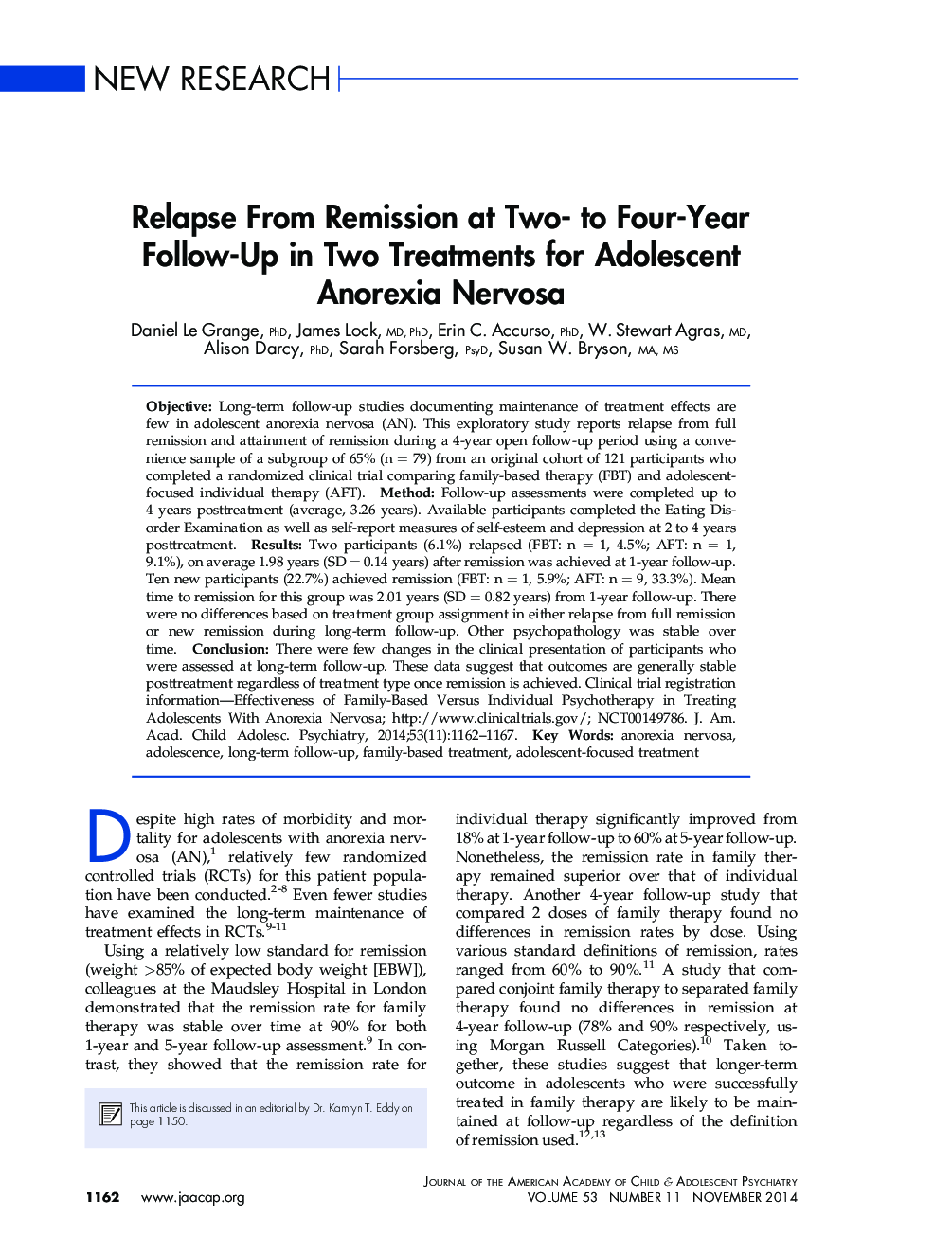| Article ID | Journal | Published Year | Pages | File Type |
|---|---|---|---|---|
| 325190 | Journal of the American Academy of Child & Adolescent Psychiatry | 2014 | 6 Pages |
ObjectiveLong-term follow-up studies documenting maintenance of treatment effects are few in adolescent anorexia nervosa (AN). This exploratory study reports relapse from full remission and attainment of remission during a 4-year open follow-up period using a convenience sample of a subgroup of 65% (n = 79) from an original cohort of 121 participants who completed a randomized clinical trial comparing family-based therapy (FBT) and adolescent-focused individual therapy (AFT).MethodFollow-up assessments were completed up to 4 years posttreatment (average, 3.26 years). Available participants completed the Eating Disorder Examination as well as self-report measures of self-esteem and depression at 2 to 4 years posttreatment.ResultsTwo participants (6.1%) relapsed (FBT: n = 1, 4.5%; AFT: n = 1, 9.1%), on average 1.98 years (SD = 0.14 years) after remission was achieved at 1-year follow-up. Ten new participants (22.7%) achieved remission (FBT: n = 1, 5.9%; AFT: n = 9, 33.3%). Mean time to remission for this group was 2.01 years (SD = 0.82 years) from 1-year follow-up. There were no differences based on treatment group assignment in either relapse from full remission or new remission during long-term follow-up. Other psychopathology was stable over time.ConclusionThere were few changes in the clinical presentation of participants who were assessed at long-term follow-up. These data suggest that outcomes are generally stable posttreatment regardless of treatment type once remission is achieved.Clinical trial registration information—Effectiveness of Family-Based Versus Individual Psychotherapy in Treating Adolescents With Anorexia Nervosa; http://www.clinicaltrials.gov/; NCT00149786.
